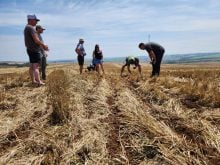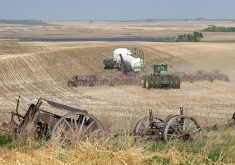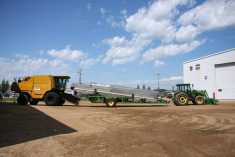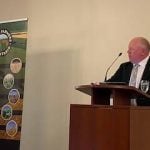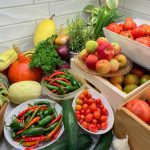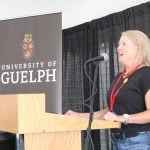QABATIYA, West Bank, (Reuters) – The olive branch is a symbol of peace in the Middle East, but for Yusuf Sabaani, the thousands of tiny olive seedlings he has just planted are a more tangible image of his dream for the future of his children.
Yet, like Palestinian farmers across the West Bank, he knows his tree nursery depends not only on his own skill and the vagaries of weather but on a fragile peace with Israel that only lately took hold and now seems threatened by rumblings of new violence, fueled by anger at the pace of negotiations.
Read Also
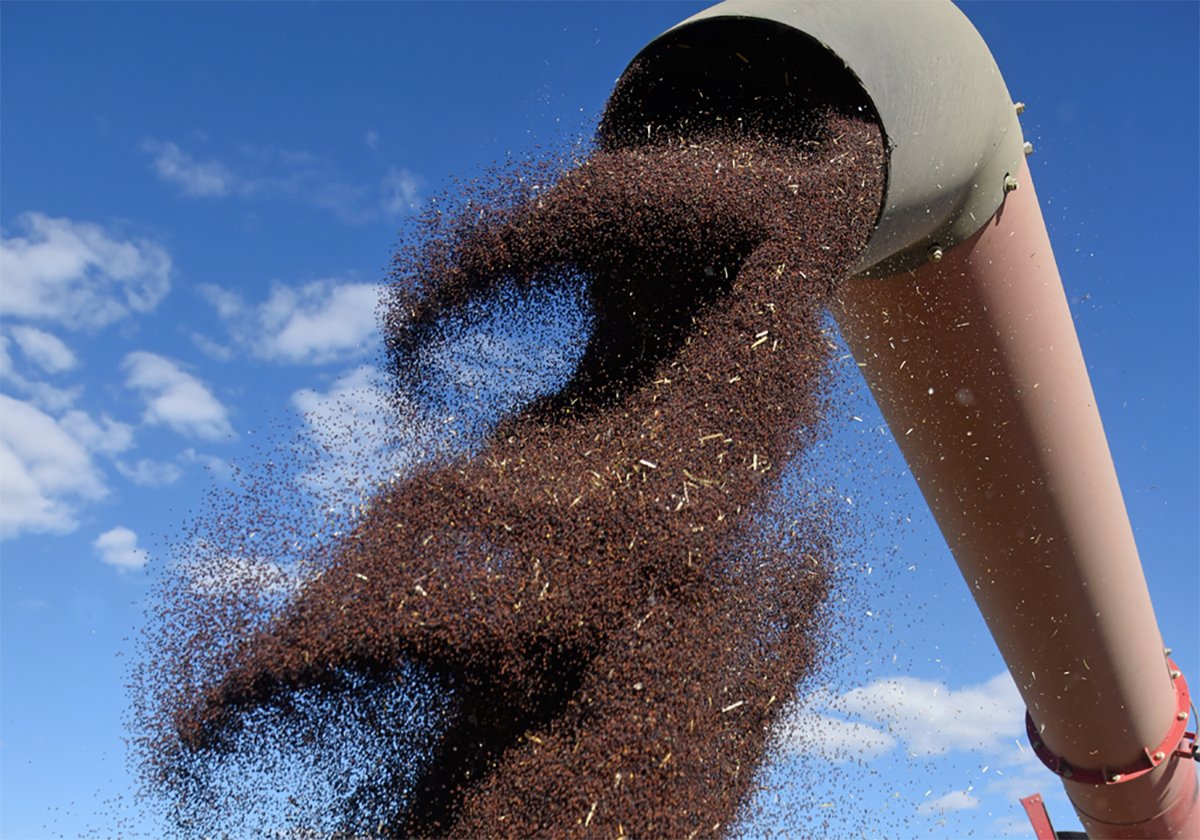
Ag minister says tariff situation with China is fragile, volatile
Agriculture ministers from across Canada said they heard canola producers’ concerns about tariffs but it seems unlikely they can do much about them.
“It’s got better over the last couple of years. During the Intifada it was tough,” said Sabaani, 48, as he showed off his pride and joy, a new plastic greenhouse nurturing 30,000 olive seedlings just outside the once turbulent city of Jenin.
“I’m hoping that we’ll see much more investment because of the stability we have here now,” the father of eight said as he strolled around his small farm at the sprawling village of Qabatiya. “We support peace between the Palestinians and Israel.
“The negotiations are important.”
U.S. president Barack Obama’s envoy George Mitchell will be back in the region this week, trying to push Israeli prime minister Benjamin Netanyahu and Palestinian president Mahmoud Abbas back to the negotiating table for a final peace deal.
In a week marked by clashes around Jerusalem that sparked talk of a third Palestinian uprising, “the people who benefitted from the last Intifada are pushing again,” he said of former militants lurking in the background.
“Going back to square one will ruin everything.”
Sabaani, who wants to expand his exports of high-yield, oil-producing olive trees into Saudi Arabia, is not alone in his determination to grab foreign aid and credit. It has arrived along with a Western-backed policing drive by Abbas’s Palestinian Authority, curbing an anarchic mix of armed groups.
Just down the road, Nimmer Nazzal, the president of the Qabatiya Co-operative for Irrigating Farmers, is inspecting the new greenhouse frames and six kilometres of piping that will house and water the village’s new venture in strawberries.
“Three or four years ago we simply couldn’t be out here,” he said, pointing out a house on the boundary between the field and the town. It was wrecked by tank fire in the second Intifada, the years of suicide bombings and gun battles that began in 2000.
“This area was too dangerous to farm during the Intifada,” said Nazzal, 41, as he explained the two-year-old, 168-member co-operative’s plans to expand into luxury cash crops for export, like strawberries, diversifying away from staples like tomatoes.
“There were checkpoints on the roads everywhere. They stopped us going to market. We could take all day just getting into Jenin, which is only a few minutes away now.
“But everything still depends on the security situation. If the atmosphere goes sour, everything will collapse overnight.”
The appreciation the farmers of Qabatiya show for the sense of security, and the availability of funding that have taken hold in the past year or two may be gratifying to Abbas’s prime minister Salam Fayyad and his European and U.S. backers.
They have pursued a strategy intended to break the violent despair felt by Palestinians in the early years of this decade, when the streets of Jenin and the fields around were best known as a battleground for Palestinian fighters and Israeli troops.
There is also acknowledgment of changes from Israel’s new leader, Netanyahu. He has ordered occupying troops to ease movement for business and people around the West Bank by lifting roadblocks – a strategy to boost prosperity before negotiating peace with a Palestinian Authority Netanyahu says is too weak in the face of Islamist hardliners to guarantee Israel security.
But as they nurture the seeds of what they hope may be a new economy for the next generation, Sabaani, Nazzal and others say Netanyahu must now show more willingness to negotiate a state for the Palestinians with Abbas – or risk frustrations with the occupation boiling over again, to everyone’s cost.
Explaining how he hopes to use his $3,000 US loan from a USAID-backed microfinance agency, Sabaani has his eye on more than the West Bank’s drying water resources.
“The future will be bad if the Israelis do not give peace a chance,” he said.
“As long as I am being reasonable, I am for peace. But if the Israelis won’t give us peace, that’ll make me mad and we’ll react unreasonably. Palestinians are people like everyone else.”
Control needed
Co-operative chief Nazzal, who is overseeing $125,000 of mostly European aid and loans on 2.47 acres of heavily irrigated land, worries about water, too, and also about the whims of Israeli control of the trade outlets through which his easily spoiled strawberries and other high-margin produce must pass.
“We have a dream to switch from traditional farming,” he said. “It’s an experiment. We’re taking a risk for the future.
“We’d like to have more control over our borders,” he added.
For now, Nazzal said, the economy is looking up around Jenin, away from areas where Jewish settlements have cut deep into the land and road system, defended by Netanyahu.




